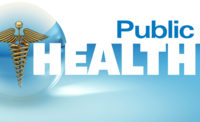A tax in Philadelphia intended to reduce consumption of sugary drinks is working, according to a public health expert who presented her findings at a national conference centered on interventions to reduce obesity.
Sugar sweetened beverage (SSB) taxes – aimed at fighting the nation’s obesity epidemic - have been gaining momentum since Berkeley, California passed the nation’s first SSB tax in 2014. Philadelphia followed suit in 2016 and six new SSB laws have passed across the U.S., although some states, like Michigan, have enacted laws preventing municipalities from passing SSB taxes, saying they would have an adverse effect on businesses.
At Obesity Week 2017, Dr. Sara Bleich presented data on the Influence of Philadelphia Beverage Tax on Prices and Sales.
American Heart Association (AHA) CEO Nancy Brown hailed Bleich’s findings as showing that “Philadelphia’s tax is working exactly as intended and exposes industry’s erroneous claims that are meant only to protect their profits at the expense of people’s health.”
The data reveal that sweetened beverage purchases in Philadelphia have declined substantially since the tax took effect which is good for health. Moreover, overall sales in Philadelphia grocery stores remained steady, which is good news for local food sector employees and businesses.
“We are pleased but not surprised by these findings; studies of sugary drink taxes in Berkeley and Mexico have also reported significant declines in purchases of unhealthy beverages,” said Brown. “And with the revenue from Philadelphia’s tax being invested in important community priorities—from thousands of additional seats in quality early care and education programs to an ambitious plan to update the city’s parks, libraries and recreation centers—children and families will reap the benefits for years to come.”
The AHA says it strongly supports sugary drink taxes because sugary drinks are the number one single source of added sugars for people in the U.S.
“These preliminary data add to the evidence that sugary drink taxes can have a powerful impact on efforts to lower the rates of conditions like heart disease, obesity, and diabetes,” said Brown, who encouraged other cities and states to follow Philadelphia’s example.



